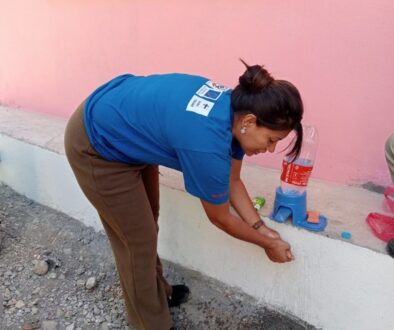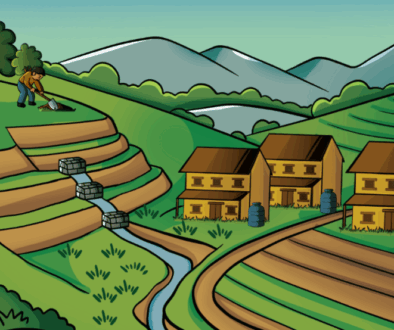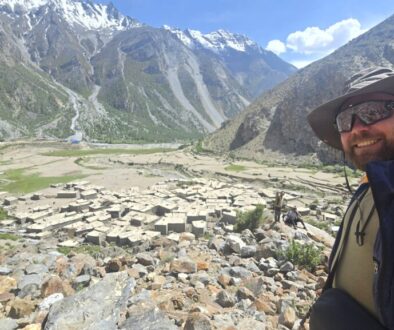
National Sanitation Week 2025 provided an important platform for reflection, celebration, and renewed commitment to sanitation and hygiene across Nepal. Led by the Government of Nepal, this annual campaign brings together communities, local governments, schools, and development partners to raise awareness and accelerate progress toward total sanitation. It is a moment to recognize achievements, highlight innovations, and reinforce our shared responsibility to ensure sustainable and inclusive sanitation for all.
In Karnali Province, the SUSWA Project, supported by the Government of Nepal, the Government of Finland, and the European Union, used the occasion to further advance its Palika-wide total sanitation approach. This week-long campaign was marked by strong local leadership, community participation, and a focus on inclusion, resilience, and behavioral change.
Why the Week Matters
National Sanitation Week is more than a symbolic event. It is a nationwide call to action, aimed at creating lasting change through collective effort. For SUSWA, it aligns closely with the project’s goals, helping local governments to strengthen WASH governance, promote equity and dignity, and ensure that sanitation services reach the most marginalized. By engaging communities and institutions, the week reinforces the idea that safe sanitation is not just about building toilets, but about changing behaviors, creating awareness, and ensuring everyone is included in the process.
Vibrant Local Government Action
National Sanitation Week 2025 kicked off on June 5th with a wave of impactful activities across SUSWA working municipalities. Under the inspiring theme “Inclusion for Safely Managed Sanitation – Our Commitment,” the week brought together communities, local governments, and schools to advance the total sanitation movement in Karnali Province.
One of the major highlights was the declaration of Patke village in Bangad Kupinde Municipality, Salyan, and Layata and Charikola Tole in Ward 5 of Darma Rural Municipality as Total Sanitation Communities. These declarations, celebrated with enthusiastic participation from local leaders and residents, marked a significant step forward in achieving inclusive and sustainable sanitation goals.
Throughout the SUSWA working municipalities, the week was marked by energetic and creative events led by local governments, schools, and community organizations. In Siddha Kumakh Rural Municipality (Ward 5), communities organized neighborhood clean-ups and constructed pits for non-degradable waste disposal. Banfikot Municipality’s WASH unit distributed dustbins in key marketplaces like Dhorpipal and Baluwa Sangrahi to promote waste management.
In Hima Rural Municipality (Ward 3), the community conducted a wide range of activities, including awareness-raising on behavioural change communication tools, water quality testing, and handwashing demonstrations. They also carried out source protection through cleanup campaigns and tree plantations. Households with improved toilets and proper waste management practices were recognized and encouraged.
Meanwhile, Mudkechula Rural Municipality (Ward 4) hosted a joint sanitation event in partnership with the local police post, engaging community members in street-level sanitation and a formal awareness program. Schools also played an active role; students from Nepal Rastriya Secondary School in Nalgad participated in discussion sessions on sanitation, while Janajyoti Secondary School in Rugha held a public speaking contest on the importance of toilets and personal hygiene.
A Thoughtful Conclusion to a Powerful Week
The campaign concluded with a meaningful province-level event on Jestha 28, 2082 (June 11, 2025) under the theme, “Inclusion in Safely Managed Sanitation Services, Our Commitment.” Organized by the Federation of Drinking Water and Sanitation Users Nepal (FEDWASUN), Karnali Province, with support from SUSWA, the event brought together key WASH actors from the government and development sectors.
The program featured presentations from participating municipalities on their activities during the week. A panel discussion moderated by Govinda Khatri included voices from the Mayor of Bheriganga Municipality, Senior Divisional Engineer from the Ministry of Physical Infrastructure and Transport, a representative from the Ministry of Water Resources and Energy Development (MoWRED), Karnali Province, who shared insights on policy challenges and future priorities. UNICEF presented a summary of the discussions and outlined action points for the coming months. Reflective remarks from stakeholders emphasized the importance of continued collaboration and innovation, closing the week on a high note of unity and shared purpose.
Moving Forward
As National Sanitation Week 2025 came to a close, it left behind a strong sense of ownership and motivation at all levels. The week reaffirmed that sanitation is not only about infrastructure, it is about dignity, inclusion, health, and behavior. It reminded us that sustainable progress is possible when local governments, communities, and partners work together with a common vision.
With the momentum built during this campaign, SUSWA and its municipal partners are better positioned than ever to move forward, ensuring that every household, school, and public space in Karnali has access to safe, inclusive, and sustainable sanitation. Together, we are making total sanitation a reality.










